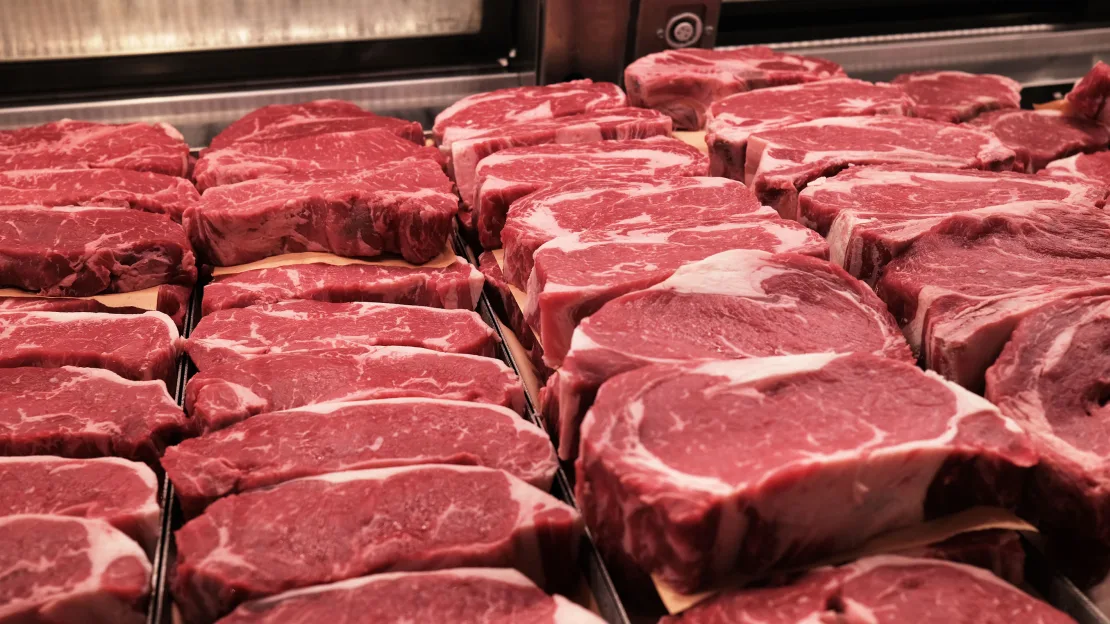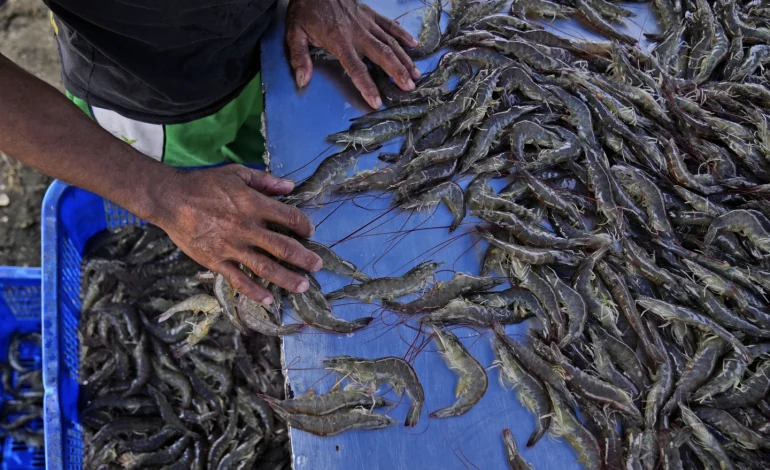A new report by an alliance of NGOs reveals a grim reality behind the booming global shrimp industry: while Western supermarkets reap windfall profits, workers at the bottom of the supply chain are suffering from exploitative labor practices and dwindling wages, The Associated Press reports.
The report, titled “Human Rights for Dinner,” focuses on Vietnam, Indonesia, and India – countries that supply half of the world’s top four shrimp markets. It found that earnings for shrimp producers have fallen by 20% to 60% since the pandemic, primarily due to aggressive pressure from major supermarkets demanding ever-lower wholesale prices.
Indonesian shrimp farmer Yulius Cahyonugroho, once employing seven people and operating more than two dozen ponds, now struggles to break even with four workers and a third of his former capacity. His wife has been forced to take on a second job to support their family.
The report details widespread exploitation of workers in the shrimp industry, including:
• Unpaid and underpaid work: Workers are often forced to work longer hours for lower wages, with many not even reaching the low minimum wage.
• Wage insecurity: Pay rates fluctuate unpredictably, creating financial instability for workers.
• Hazardous working conditions: The report highlights unsafe work environments, particularly in India and parts of Indonesia, with some workers even experiencing child labor.
The report names several supermarkets linked to facilities where these exploitative practices were reported, including Target, Walmart, Costco, Sainsbury’s, Tesco, Aldi, and Co-op.
While some supermarkets, like Co-op, claim a “zero tolerance” policy for labor violations and emphasize fair pricing, others have not responded to requests for comment.
In Vietnam, the heart of the industry, workers involved in shrimp processing, predominantly women, endure harsh working conditions. They often work six or seven days a week, starting their day as early as 4 AM and ending at 6 PM, in frigid rooms designed to keep the shrimp fresh. Wages, typically undisclosed beforehand, are based on production, leaving many workers earning below the minimum wage.
This exploitative environment is exacerbated by the global demand for lower shrimp prices, driven by major supermarkets seeking higher profits. The pressure to meet these demands has led to a decline in earnings for shrimp farmers, who are forced to sell their product at a loss just to stay afloat.
The problem extends beyond the plight of farmers. The Sustainability Incubator report reveals a widespread prevalence of unpaid labor in the shrimp industry across major producing nations like India, Indonesia, Vietnam, Ecuador, Thailand, and Bangladesh. Workers face salaries below minimum wage, unpaid overtime, wage deductions for work-related expenses, and a significant presence of debt bondage. In Indonesia, research organizations found that shrimp workers’ wages have fallen since the pandemic, averaging just $160 per month, below the minimum wage in most shrimp-producing provinces. Furthermore, shrimp peelers in Indonesia are routinely forced to work at least 12 hours a day to meet minimum targets.
Ecuador, employing an industrial approach to shrimp farming, has become the world’s leading shrimp exporter. Its large-scale operations have resulted in the lowest prices in the global market, followed by India. While Ecuador’s exports saw a 12% increase in volume in 2023, the demand for lower prices led to a 5% decrease in value. Similarly, India experienced a 1% rise in export volume but a significant 11% drop in value.
In contrast, Vietnam and Indonesia, which command higher prices for their shrimp, saw their exports decline in 2023. Vietnam’s volume fell by 25%, and Indonesia’s dropped by 9.5%. This suggests that the shrimp market is increasingly driven by price competition, with countries like Ecuador and India benefiting from their ability to produce and export at lower costs.









